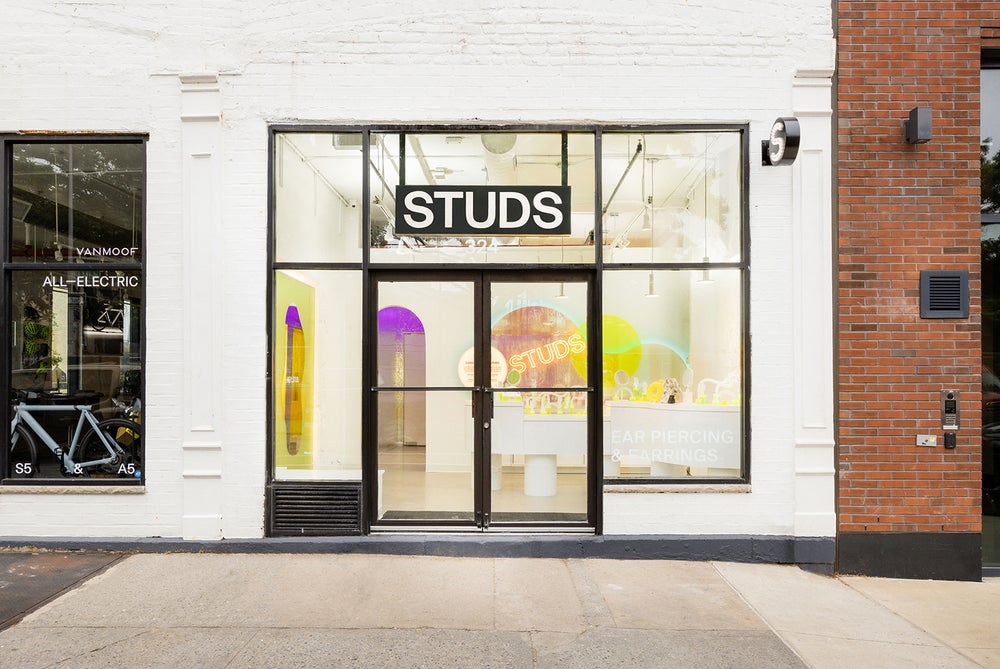I Built My Company to 23 Profitable Stores. Here's My Advice to Small Business Owners Who Want to Grow Their Retail Presence. Studs co-founder and CEO Anna Harman shares the advice that helped her turn her piercing startup into a thriving business that puts consumers first.
By Anna Harman •
Key Takeaways
- There's one question you need to ask yourself first.
- Next, get down and dirty with your finances.
- When expanding into retail, the details matter.

Opinions expressed by Entrepreneur contributors are their own.
If you were to take a stroll down the shopping haven that is Prince Street in downtown Manhattan, you'd come across two distinct camps of brick-and-mortar locations: need-to-have stores and nice-to-have stores. Smack dab in the middle of the bustling SoHo neighborhood, you're more likely to find the latter, with sky-high real estate prices that suit tenants like Apple and Louis Vuitton — companies that would do well even if they didn't have outposts there. Go a few blocks east, though, and you'll land in Nolita, a charming, trendy area with a bit more edge. Nolita, in many cases, is the land of need-to-have stores — including us at Studs.
When navigating your retail growth, the distinction between need-to-have and nice-to-have is a crucial one. It's how we've built our company to 23 profitable stores since my co-founder Lisa Bubber and I first founded Studs — a retail and ecommerce brand that has reimagined the ear piercing experience — in 2019. Because, as it turns out, there's no such thing as a business built on ear piercing without a physical space to actually do the piercing itself. So here are three pieces of advice I offer to any new entrepreneur looking to grow their business and wanting to know if a physical store is right for them.

1. Ask yourself this question
As an entrepreneur, my greatest piece of advice for other business owners looking to expand their retail footprint is to start by asking themselves one question: Why? In our case, we knew we needed to have stores by the very nature of our business. We can't execute our mission without them — which is why you'll find us in Nolita, not SoHo — and at 23 other locations nationwide.
In other words, ask yourself this: What's the purpose of your store, and how does it fit into the broader context of your business?
For some companies, a nice-to-have store can still be incredibly important for the overall value proposition. Stores can be so much more than just transactional. Physical stores can offer their customers an experience that supports their overarching brand identity. Other stores can simply be a destination, a headquarters for community gatherings that support the mission of the brand.
Related: One of the Biggest Mistakes Aspiring Entrepreneurs — and Almost Everybody — Make
2. Get down and dirty with your finances
If you need to have a store in a practical sense, you have to be able to afford the store. And if you do, in fact, need a store, get down and dirty with your finances. Ask yourself these questions:
- What can I afford?
- How much product can I expect to sell?
- How many people do I need to have in the building in order to sell the product?
- And finally, how do I make enough money to pay my rent — and, hopefully, have more to spare?
Related: 7 Ways to Fund Your Startup in 2024
This becomes a very different decision-making process for businesses that just want to have a store — but a store isn't necessary to the company's bottom line. Take a buzzy beauty retailer that views its brick-and-mortar offerings as extensions of its community-building strategy: How do you design an experience that makes it more compelling for consumers to take time out of their busy days to visit a store in person and enter the world of the brand, as opposed to just buying the product online?
At Studs and for many other service-based companies, this thinking is still top of mind — but we also need our stores to be financially sustainable. The return on investment becomes a much more critical piece of the puzzle.
Related: How to Increase Foot Traffic to Your Retail Store
3. No detail should be overlooked
So, now you've determined your retail expansion "why" and how you'll be able to afford it in the first place. My third and final piece of advice comes down to your business model. Every detail of your business model will make an impact, and the more you study and nitpick your business in the early stages, the easier it will be to scale.
In the early days of Studs, we spent a lot of time answering all sorts of nitty-gritty questions. No detail was to be overlooked. How do we price the product? How many people will work in the store, and how will they be compensated competitively? What are the store hours? These are all decisions that add up to the economics of the store, which — spoiler alert — can and will change dramatically from neighborhood to neighborhood, city to city, state to state. Ironing out the economics early, with absolute, meticulous detail, will make the day-to-day of running a store that much more seamless.
Looking ahead, I expect to see more nice-to-have stores generally, but that certainly doesn't mean need-to-have stores are going anywhere. Having any sort of retail footprint is hard work, and that doesn't matter what kind of store it is. But these three tips make the process a bit more navigable, especially when you're just getting started.
Related: How to Write an Operations Plan for Retail and Sales Businesses











